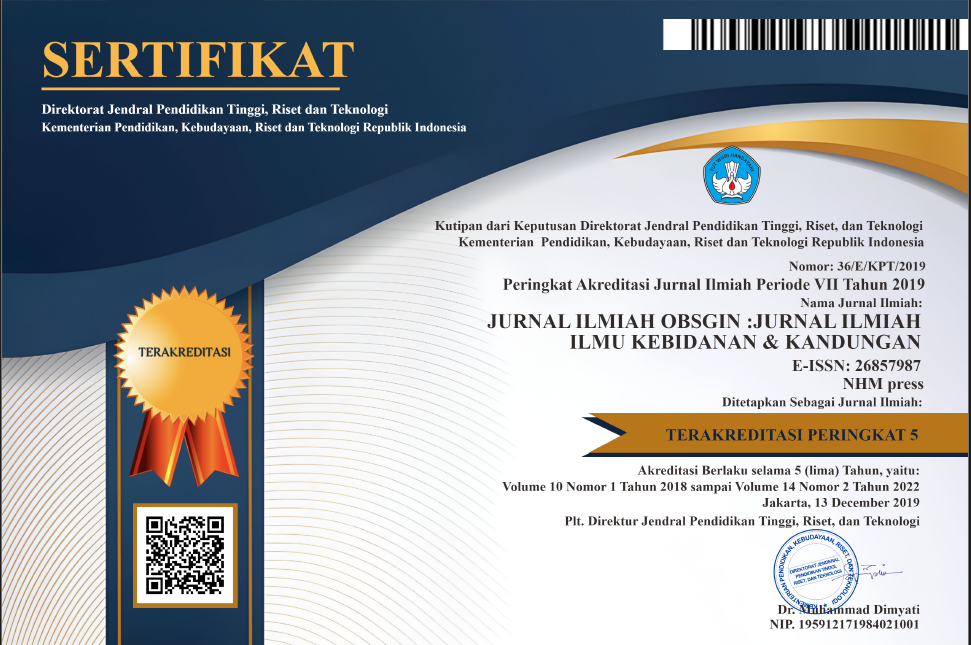MOTHER'S INTEREST HUSBAND SUPPORT RELATIONSHIP WITH MOTHER'S INTEREST IN FOLLOWING PREGNANT WOMEN CLASSES IN THE VILLAGE OF BANJARSAWAH
Abstract
The maternal and child health program aims to improve the health status of mothers and children and reduce the maternal mortality rate (MMR) and infant mortality rate (IMR) through maternal and child health services. Antenatal Care (ANC) services carried out by health workers during pregnancy as an early prevention of risk factors that occur during pregnancy. Pregnant women who perform ANC to health facilities (puskesmas or sub-health centers) will receive information about the implementation of the class for pregnant women. The purpose of this study was to analyze the relationship between husband's support and mother's interest in attending a Pregnant Women Class in Banjarsawah Village. This study uses a correlational analysis design with a cross sectional approach. The sample data were all pregnant women who were recorded in January 2022 in the village of Banjar Sawah with a total of 34 samples that met the inclusion criteria with the total sampling technique. Data collection includes, coding, editing, and tabulating which then the data is analyzed by computer with the Spearman test p value: 0.05. The results showed that respondents had husbands with a less supportive category of 22 respondents (64.7%), respondents used attending classes for pregnant women with low interest categories by 13 respondents (38.2%) and p value: 0.000. The conclusion of the study is that there is a relationship between husband's support and mother's interest in attending a Pregnant Women Class in Banjarsawah Village (p = 0.000 <0.05). The suggestion put forward is that regional midwives, private practice midwives can work together across programs or sectors by involving religious leaders, community leaders to provide counseling or provide periodic and continuous education to the community about the importance of classes for pregnant women.












